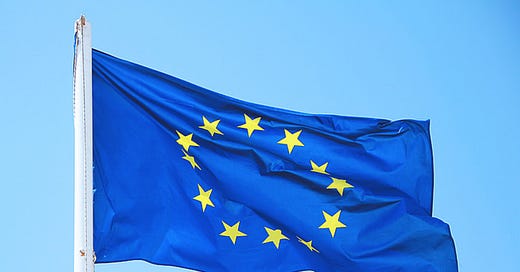Before Elon Musk’s interview with President Trump on Monday, the European Union sent him a warning letter reminding him of their law against promoting “harmful content.”
Senator Mike Lee (R-UT) responded to this unprecedented threat by posting a thread on X asking whether the U.S. should reevaluate its relationship with the European Union.
Please read his comments and tell us what you think in our poll below.
Sen. Mike Lee (R-Utah)
The American people can’t pretend the European Union’s attempt to extort Elon Musk yesterday — threatening to punish him unless he canceled his plan to interview Donald Trump on X — didn’t threaten to fundamentally change our relationship with longstanding European allies.
Fully 22 of the 27 countries that belong to the European Union also belong to NATO, meaning that they benefit from the U.S. security umbrella, and from our obligation under Article 5 of the North Atlantic Treaty to defend them if they’re attacked.
This works out well for Belgium, Bulgaria, Croatia, Czech Republic, Denmark, Estonia, Finland, France, Germany, Greece, Hungary, Italy, Latvia, Lithuania, Luxembourg, Netherlands, Poland, Portugal, Romania, Slovakia, Slovenia, and Spain.
It’s sometimes less of a good deal for the U.S., which has long shouldered a disproportionate share of Europe’s security burden.
Those same 22 countries dominate — and certainly have the power to restrain — the EU.
Those countries (which control the EU) tried to wield the EU’s regulatory power over a U.S. company to influence our presidential elections — based on the absurd contention that the EU had to act to protect EU citizens from misinformation.
They tried to help Kamala Harris by depriving Donald Trump of an opportunity offered to both Trump and Harris (but accepted by Trump and declined by Harris): a live interview with Elon Musk on X — one of the few channels of information in America that isn’t “all in” for Harris.
How can we ignore that 22 of our European allies, acting through the EU, are trying to interfere with and affect the outcome of our presidential elections?When we put American blood and treasure on the line — as we do by honoring our NATO commitments — that should mean something. At a minimum, it should mean that they won’t extort U.S. companies to interfere with our presidential elections.
What do you think this should mean for the future of NATO, and U.S. involvement in it?
Our often-unreciprocated security assistance to these European allies makes it easier for them to do other things with their money — like funding extravagant welfare-state programs and the EU, which has now been weaponized against us to influence our presidential elections.
Europe had a good thing going — we pay for their security (far more of it than we should) so they can do whatever they want.
With the “whatever they want” approach culminating in what happened yesterday — with Thierry Breton trying to extort Elon Musk to help Kamala Harris defeat Donald Trump — the EU has now offended at least half of American voters. (I hope it’s more than half, given that this should bother Democrats too).
Imagine what would’ve happened if the EU had tried to do this four years ago to help Donald Trump and hurt Joe Biden. I know, it’d never happen that way, but imagine the outcry if it did. The media would be incensed and outraged over this. They’d have spoken of little else.
And yet what is the MSM saying about this? Basically nothing.
This is a good time for Americans — despite what they’re hearing, or not hearing, from the media (and regardless of their political ideology) — to stop and think about what this outrageous act by the EU should mean for America and her interests in Europe.
If the EU’s attempt to extort a U.S. company in an obvious effort to influence the U.S. presidential election isn’t cause for U.S. to re-evaluate our relationship with our European allies, I don’t know what is.






